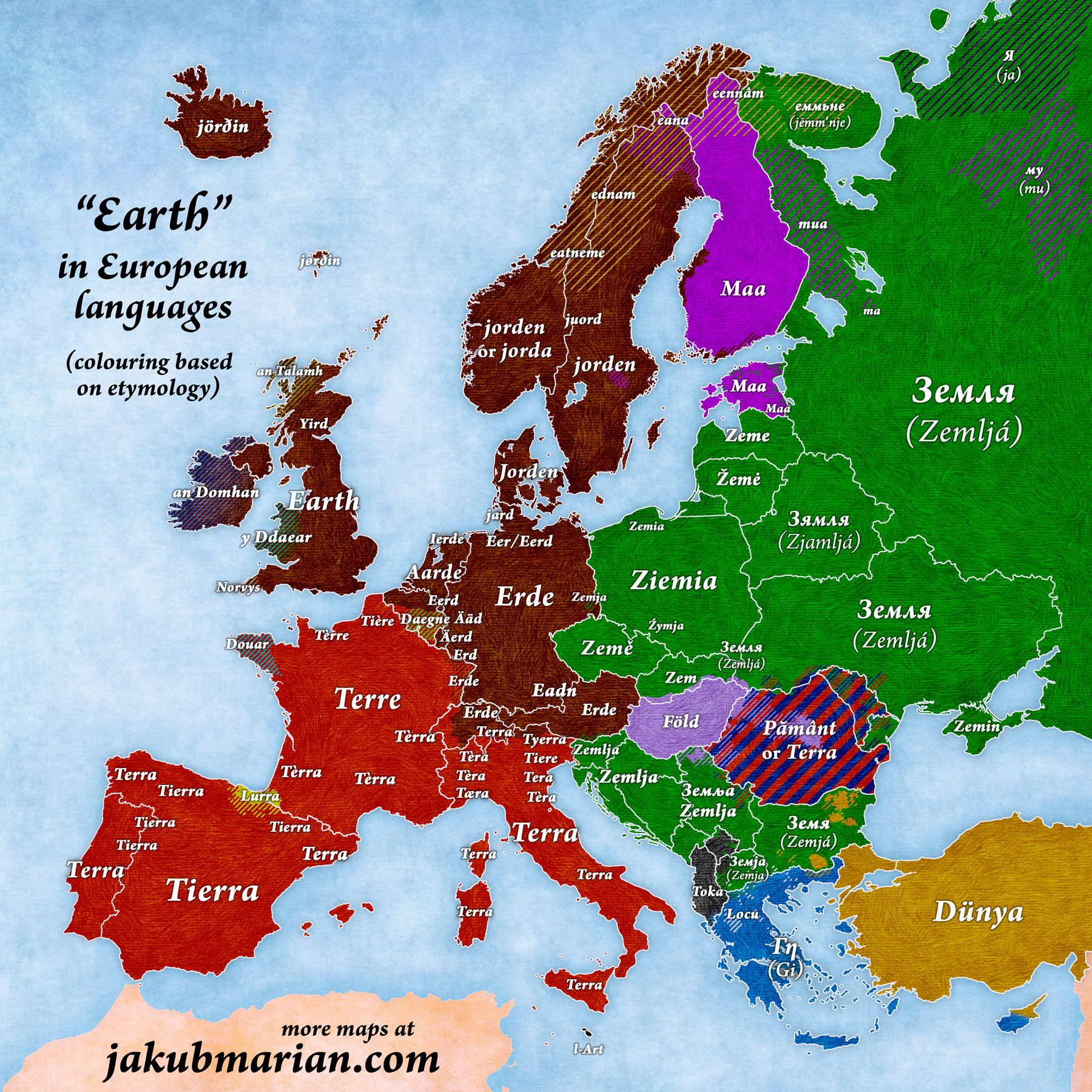The English word “Earth”, German “Erde”, Swedish “jorden”, and similar expressions in other Germanic languages come from Proto-Germanic *erþō, which meant, well, “earth”. They are shown in brown on the following map:

There are two more very widespread etymologies in Europe. In Romance languages, the expression is mostly derived from Latin terra (“earth”), which comes from Proto-Indo-European *ters-, “dry”. A notable exception is Romanian: the most common expression for Earth, Pământ, is derived from Latin pavīmentum (“a floor composed of small stones”, related to English “pavement”). Note that I was not able to find any information about the origin of the Walloon word Daegne.
Slavic and Baltic languages are also very uniform. The expressions in all Baltic and Slavic languages are derived from Proto-Balto-Slavic *źemē (“earth”).
 Tip: Are you a non-native English speaker? I have just finished creating a
Tip: Are you a non-native English speaker? I have just finished creating a  Web App
Web App
